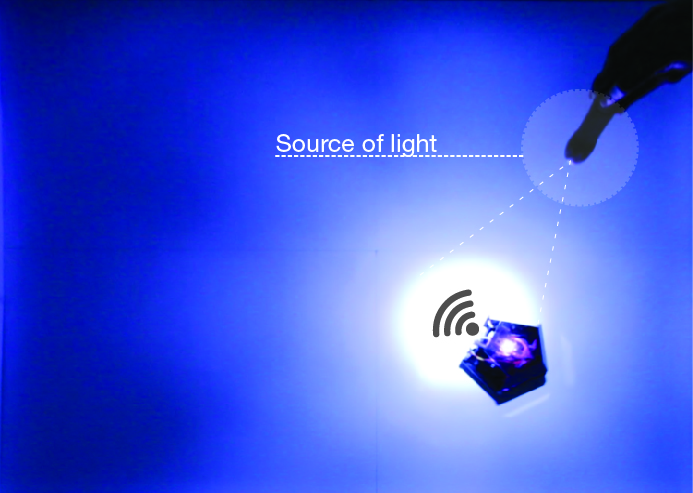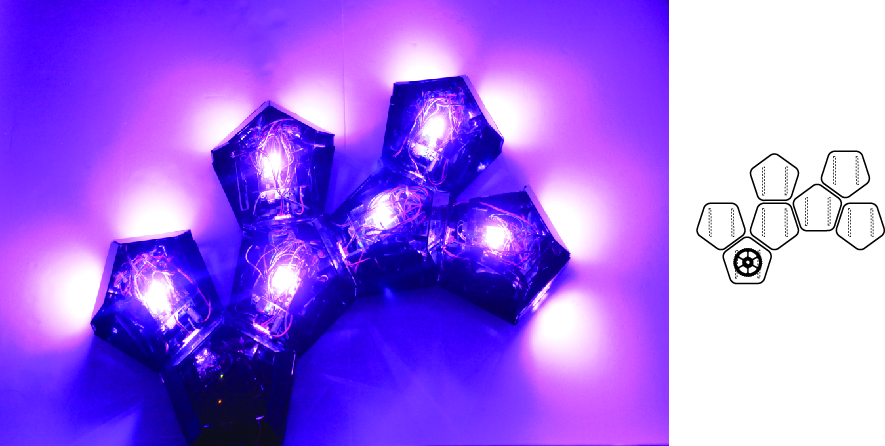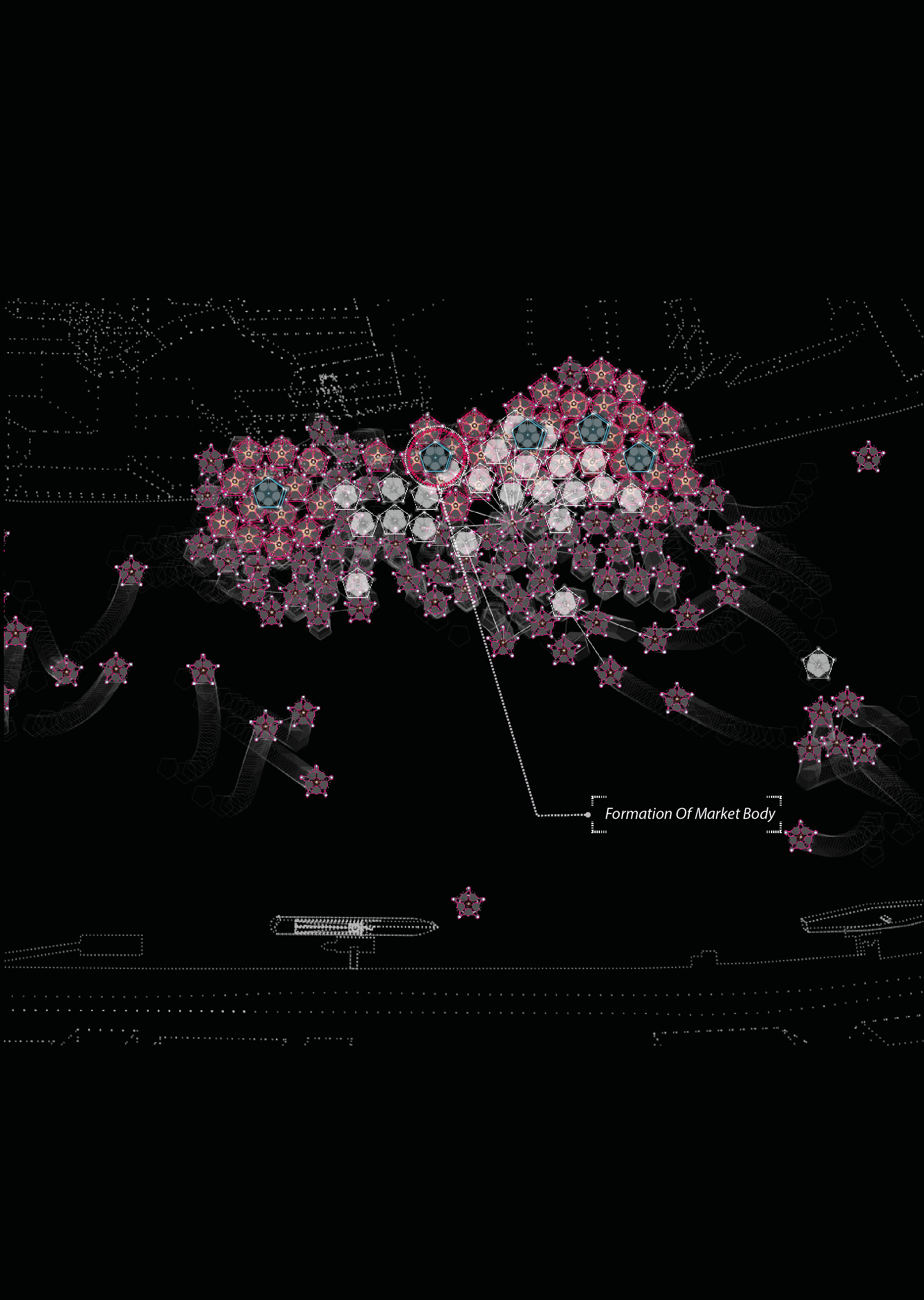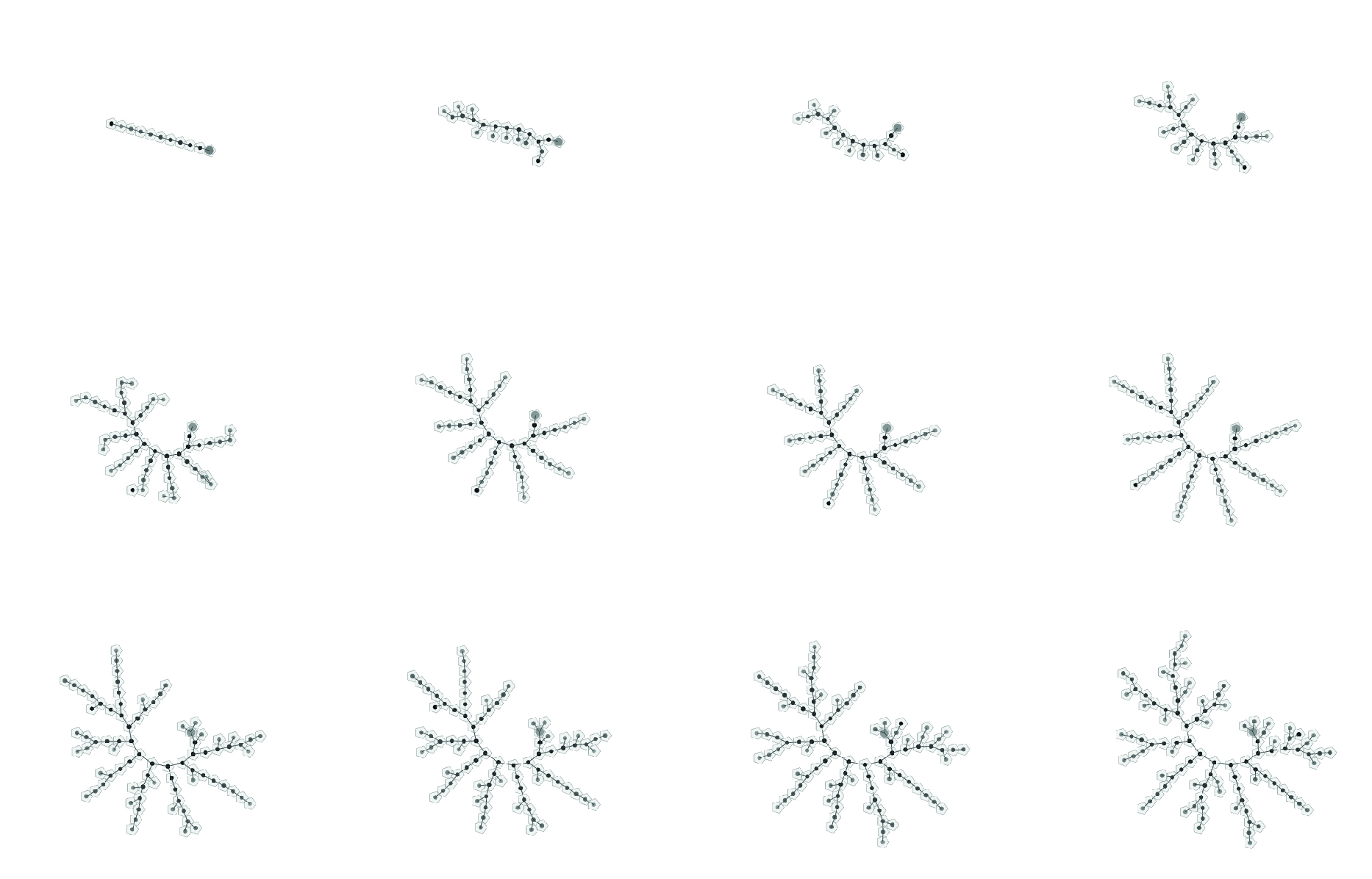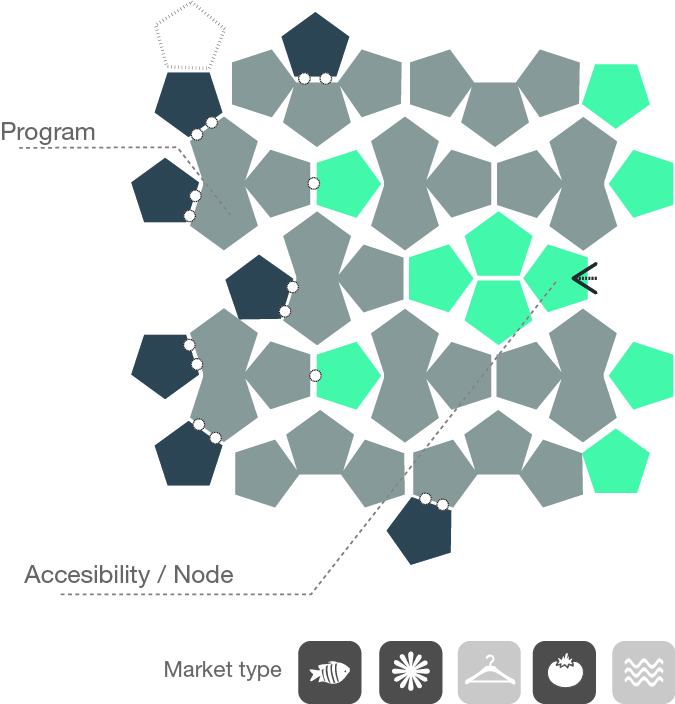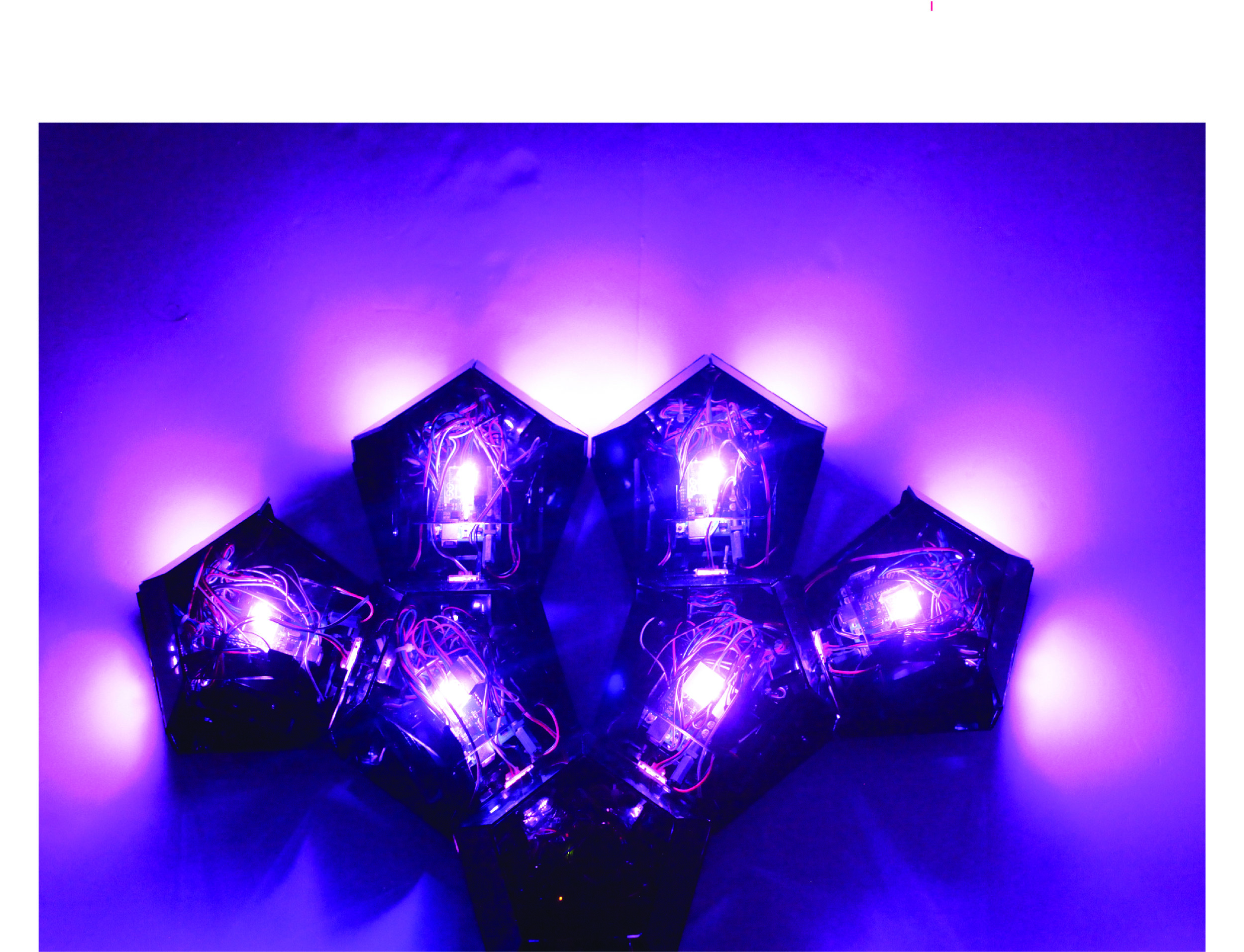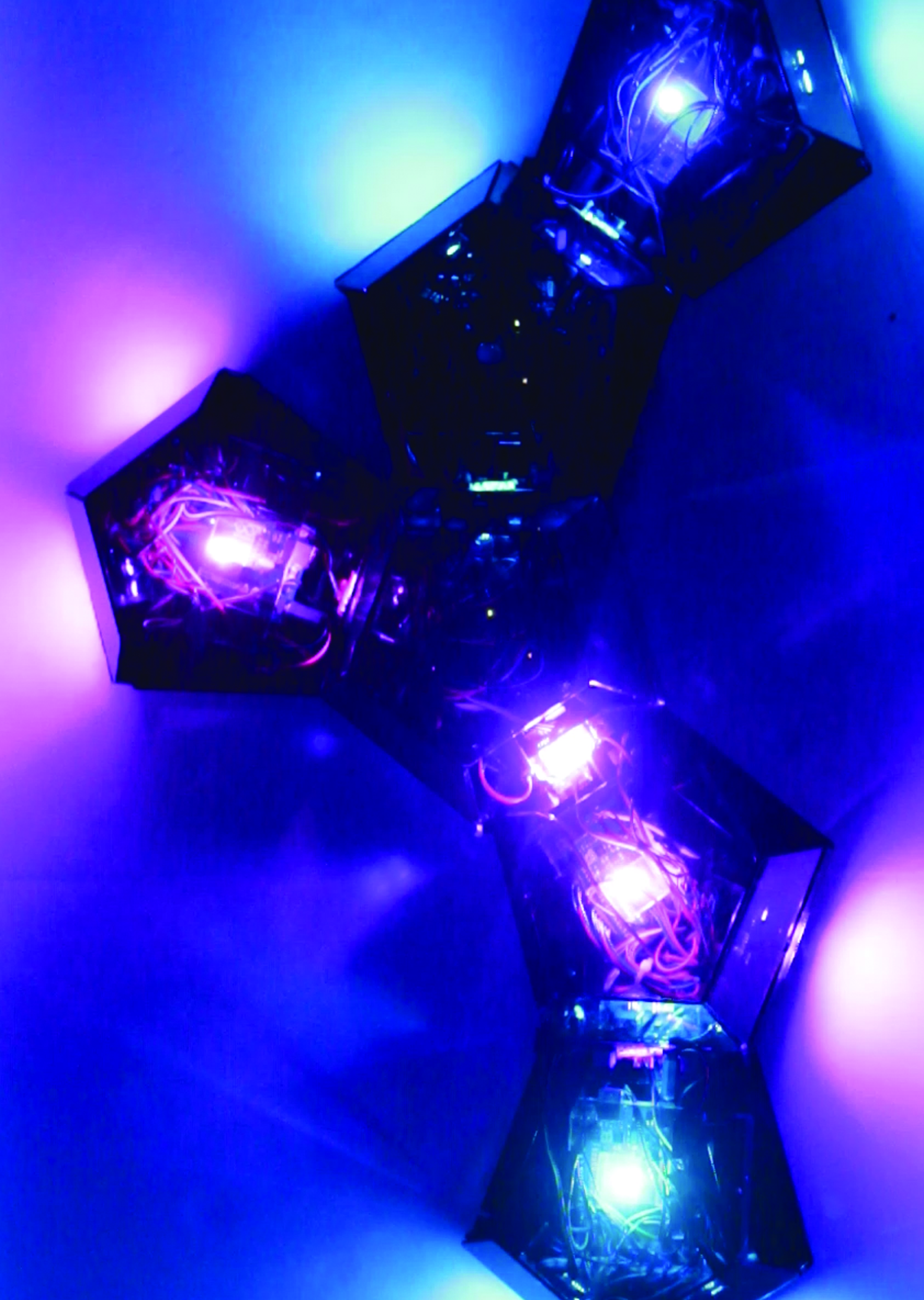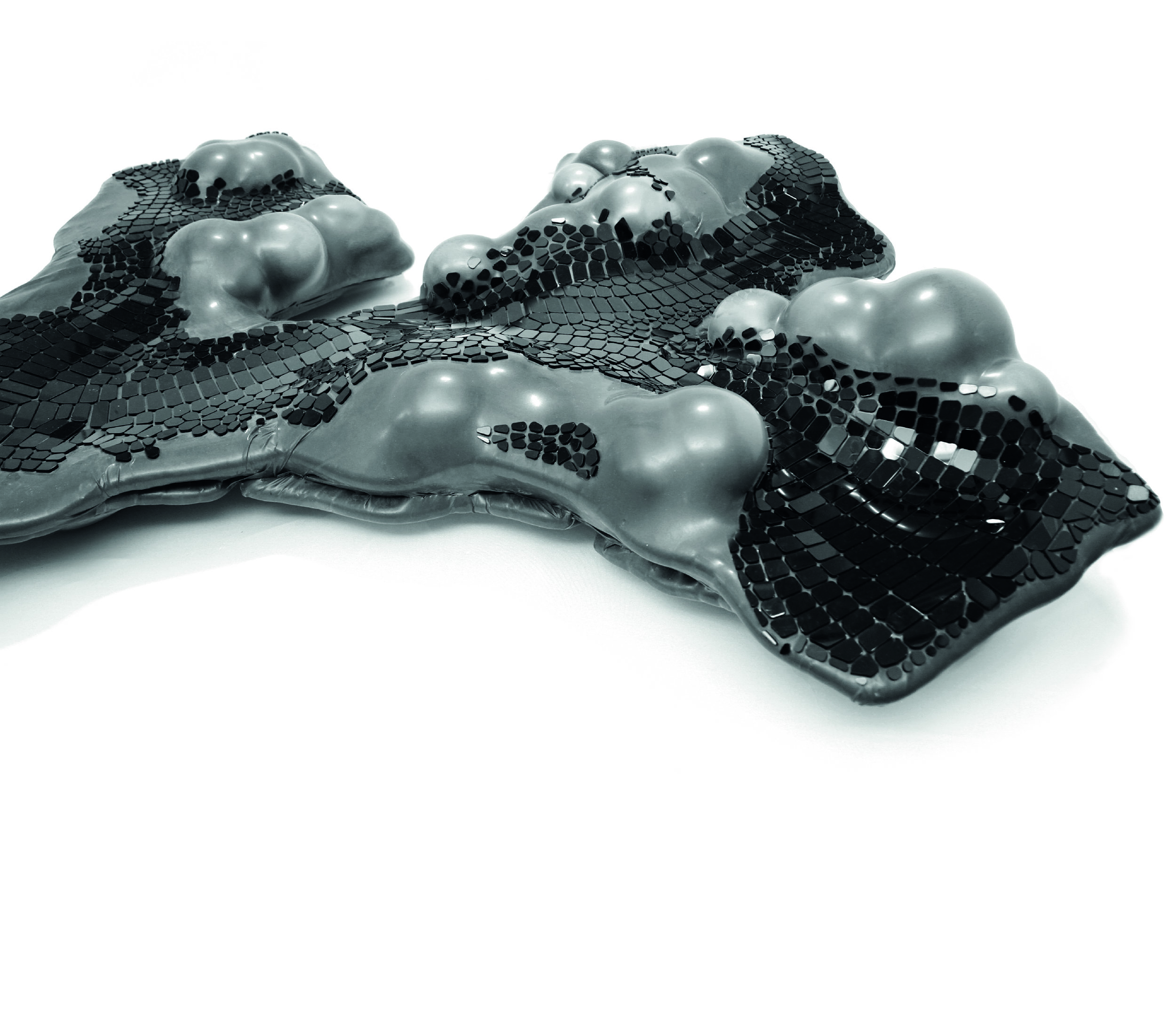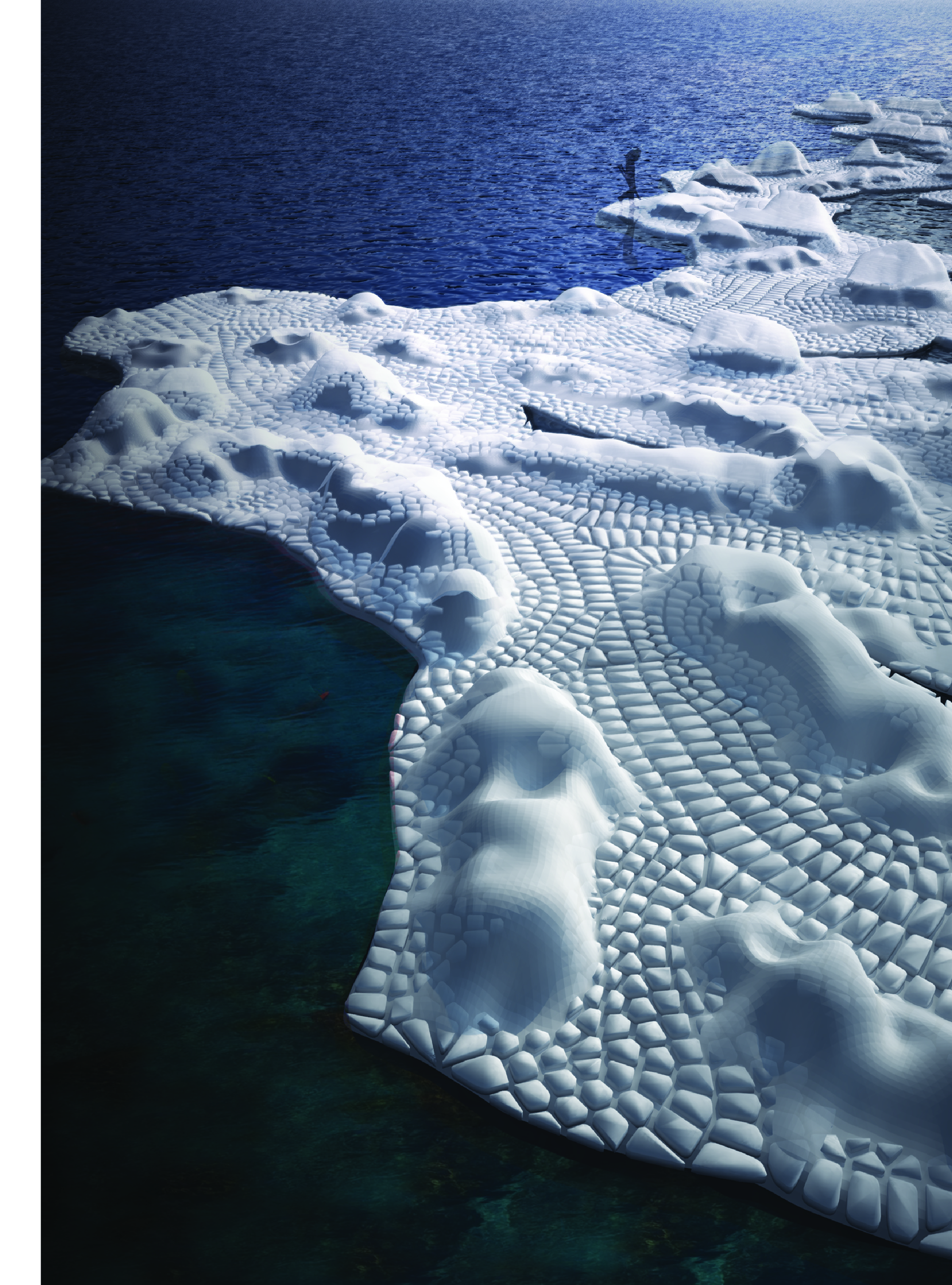2012-2014
FLOW5
Studio Theodore Spyropoulos
Tutors Mostafa El-Sayed, Apostolis Despotidis
Team Devika Chowgule, Izabella Micheletto Lima, Maria Andrea Usme, Ronak Parikh
Behaviour will be explored as a model for architecture that embraces an intimate engagement between social and material interaction. The emphasis will seek to open the discourse of behaviour as a scenario driven operational research that engages a shift of an understanding of the world as dynamic and evolving. The studio will seek to engage in social scenarios that embrace the possibilities of a soft machine architecture that engages man through life-like attributes and partnerships. These soft systems will evolve hyper specific forms of engagements that establish relational features through a form of computation that actively seeks feedback and circularity in an attempt to construct intelligence within the system. The systemic and sense enabled logic will use the concept of the real-time and the implementation of robotic agency to examine the time-based and material driven coupling of emotive and human centric conditioning. Architecture will be an active and evolving ecology.
Our architecture will consider material agency as an active participant in our pursuit for behaviour-based architecture. Materiality will be challenged through an operative speculative interrogation of what we call digital materialism that will look towards transformative properties such as phase change, life cycles and adaptive ecologies that afford stimulus for a life-like and participatory architecture.
Models of interaction, in form of robotic fabrication, will look towards population-based scenarios that challenge a system to accommodate and respond to evolving characteristics of the human environment. These features will challenge the notion of settlement and mobility within architecture. Our architecture will be considered a synthetic ecological environment. Energy will be an underlying theme that will examine self-sustaining means that architecture can construct and challenge our infrastructural dependence. This pursuit will break the dominance of mega structuring approaches of the past and move into a generative understanding of resources through a metabolic refactoring of our architecture.


